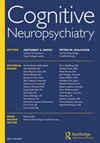What is the Korsakoff syndrome? – a paper in tribute to Prof Alwyn Lishman
IF 0.9
4区 医学
Q3 PSYCHIATRY
引用次数: 9
Abstract
ABSTRACT Introduction Alwyn Lishman was interested in how memory research could be applied to clinical psychiatry. After a brief review of his major contributions, this paper will focus on his research on the alcoholic Korsakoff syndrome. It will consider how his findings relate to contemporary debates, particularly on how the syndrome should be defined, and its relationship to broader alcohol-induced cognitive impairments. Methods A review of the contribution of Alwyn Lishman, Robin Jacobson and colleagues to our knowledge of Korsakoff’s syndrome, together with a review of the pertinent recent literature. Results Lishman and colleagues followed earlier authors in defining the Korsakoff syndrome in terms of disproportionate memory impairment, but they also noted a variable degree of IQ, frontal-executive, and timed visuo-spatial impairment in their cases. More recent authors have included such features in their definitions of the syndrome. Lishman also argued for a specific “alcoholic dementia”. The present paper argues that recent definitions of the Korsakoff syndrome confound its core and associated features, and also fail to recognise the multifactorial basis of alcohol-related brain damage. Conclusions Korsakoff’s syndrome is best defined in terms of disproportionate memory impairment, and more widespread cognitive impairment is best encompassed within “alcohol-related brain damage”.什么是Korsakoff综合征?——一篇向Alwyn Lishman教授致敬的论文
Alwyn Lishman对如何将记忆研究应用于临床精神病学很感兴趣。在简要回顾他的主要贡献后,本文将重点介绍他对酒精性Korsakoff综合征的研究。它将考虑他的发现与当代争论的关系,特别是关于该综合征应该如何定义,以及它与更广泛的酒精引起的认知障碍的关系。方法回顾Alwyn Lishman、Robin Jacobson等人对科尔萨科夫综合征的认识,并对近期相关文献进行综述。结果:利什曼和他的同事们沿用了早期作者的观点,将科萨科夫综合征定义为非比例记忆障碍,但他们也注意到,在他们的病例中,智商、额叶执行能力和时间视觉空间障碍的程度是不同的。最近的一些作者在他们对该综合征的定义中也包括了这些特征。利什曼还提出了一种特殊的“酒精性痴呆”。本文认为,最近对Korsakoff综合征的定义混淆了其核心和相关特征,也未能认识到酒精相关脑损伤的多因素基础。结论:科尔萨科夫综合征的最佳定义是不成比例的记忆障碍,而更广泛的认知障碍最好包含在“酒精相关的脑损伤”中。
本文章由计算机程序翻译,如有差异,请以英文原文为准。
求助全文
约1分钟内获得全文
求助全文
来源期刊

Cognitive Neuropsychiatry
PSYCHIATRY-
CiteScore
3.20
自引率
11.80%
发文量
18
审稿时长
>12 weeks
期刊介绍:
Cognitive Neuropsychiatry (CNP) publishes high quality empirical and theoretical papers in the multi-disciplinary field of cognitive neuropsychiatry. Specifically the journal promotes the study of cognitive processes underlying psychological and behavioural abnormalities, including psychotic symptoms, with and without organic brain disease. Since 1996, CNP has published original papers, short reports, case studies and theoretical and empirical reviews in fields of clinical and cognitive neuropsychiatry, which have a bearing on the understanding of normal cognitive processes. Relevant research from cognitive neuroscience, cognitive neuropsychology and clinical populations will also be considered.
There are no page charges and we are able to offer free color printing where color is necessary.
 求助内容:
求助内容: 应助结果提醒方式:
应助结果提醒方式:


